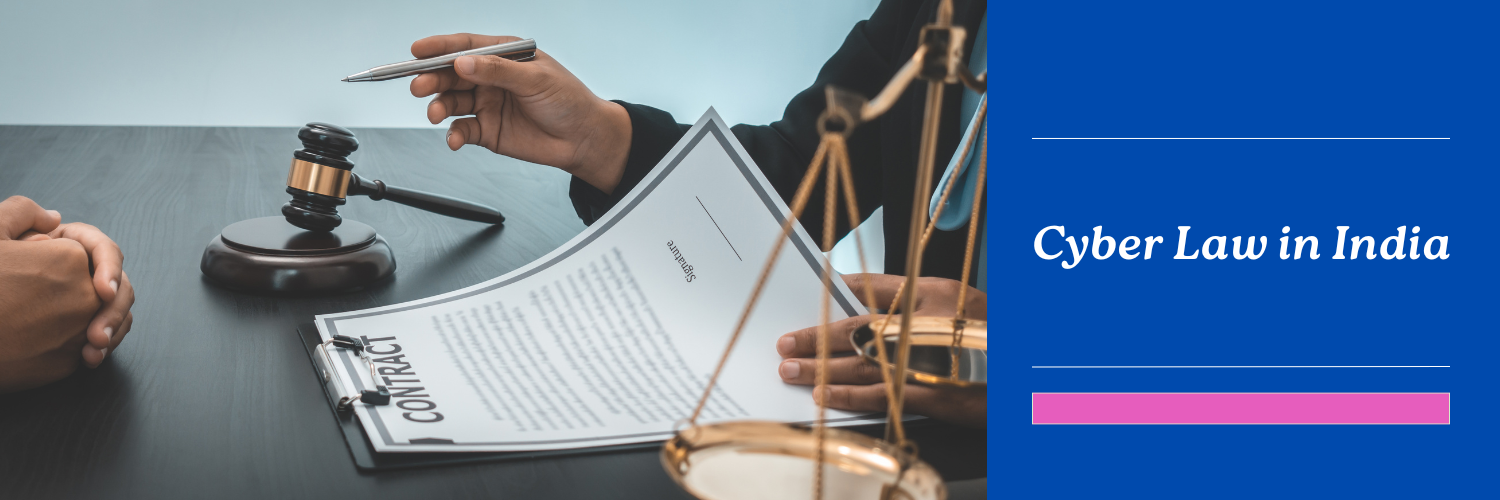As our lives become increasingly intertwined with the digital world, cyber law in India emerges as the vigilant protector of our virtual interactions. It serves as a guiding beacon, helping netizens navigate the complex web of online activities while safeguarding rights and defining digital wrongs. This legal domain is not just a static set of rules but a dynamic force, evolving with every click, swipe, and share. As we venture into Indian cyberspace, let’s explore the threads of cyber law that hold our digital society together, shielding it from the unseen threats lurking in the shadows of the internet. Join us on a journey through the labyrinth of IT law in India, where every byte of data tells a story, and every story is recorded within the annals of legal frameworks.
Understanding cyber law
Cyber law, also known as information technology (IT) law, addresses the legal issues associated with the internet and digital communication. This broad field covers a wide range of topics, including electronic commerce, data protection, cybercrime, and intellectual property rights. In India, the cornerstone of cyber law is the Information Technology Act, 2000 (IT Act), which was enacted to provide legal recognition and regulation for transactions conducted through electronic data interchange and other forms of electronic communication.
Amendments and Evolution
The Information Technology Act of 2000 was a pioneering step in Indian cyber law, evolving to address digital challenges. The most significant amendment occurred in 2008, enhancing data protection, privacy, and security.
2008 Amendment Highlights
In response to rising cybercrimes, the 2008 Amendment introduced key changes:
- New Offenses: Expanded cybercrimes to include identity theft, cyber terrorism, and child pornography.
- Data Protection: Section 43A required corporate bodies to implement security practices for sensitive personal data.
- Cybersecurity Measures: Mandated the appointment of Chief Information Security Officers (CISOs) in organizations.
- Electronic Signatures: Established a legal framework for electronic signatures.
- Electronic Evidence: Recognized electronic records as admissible evidence in legal proceedings.
Impact
- Businesses: Companies enhanced cybersecurity and data protection measures.
- Legal System: Streamlined judicial processes involving digital data.
- Individuals: Strengthened data protection empowered individuals with greater control over personal information.
Continued Evolution
The IT Act continues to evolve, with subsequent amendments and new regulations like the Digital Personal Data Protection Act of 2023, further strengthening the legal framework for digital activities. This evolution reflects India’s commitment to a secure and resilient digital infrastructure.
Cyber Crimes and Penalties under the IT Act
Cybercrimes and the penalties outlined in the Information Technology Act (IT Act) of India are pivotal in upholding the integrity of the digital realm. Here’s an overview of key offenses and their corresponding consequences:
- Hacking: Unauthorized access to computer systems, intending harm or loss, can result in imprisonment for up to three years and/or a fine.
- Identity Theft: Fraudulent use of another person’s electronic credentials may lead to imprisonment for up to three years and/or a fine.
- Phishing: Deceiving individuals to obtain sensitive personal information carries penalties of imprisonment for up to three years and/or a fine.
- Spreading Viruses: Introducing harmful computer contaminants can result in severe penalties, including imprisonment.
- Forgery of Electronic Records: Tampering with computer source documents may incur imprisonment for up to three years and/or a fine.
- Cyber Frauds: Cheating using computer resources or communication devices may lead to imprisonment for up to three years and/or a fine.
- Destruction of Electronic Evidence: Actions leading to the destruction or alteration of electronic evidence can trigger legal action under the IT Act.
Digital Personal Data Protection Act 2023 (DPDPA-2023)
The Digital Personal Data Protection Act 2023 (DPDPA-2023) is a significant legislation aimed at bolstering personal data protection in India. Notable aspects of the Act include:
- Individual Rights: Recognizing individuals’ rights to safeguard their personal data and specifying lawful purposes for data processing.
- Data Processing Framework: Establishing a structured approach for secure and transparent handling of personal data.
- Consent Requirement: Mandating explicit consent from individuals before collecting their personal data.
- Data Protection Authority: Creation of a Data Protection Authority tasked with overseeing and enforcing the Act’s provisions.
Collaborative Cyber Law Enforcement in India
Enforcing cyber law in India involves various stakeholders working in tandem to uphold digital order:
- Ministry of Electronics & Information Technology (MeitY): MeitY spearheads policy formulation, shaping India’s cyber law landscape. It establishes legal frameworks to regulate the digital sphere, ensuring alignment with technological advancements.
- Law Enforcement Agencies: Entities like the Indian Cybercrime Coordination Centre (I4C), under the Ministry of Home Affairs, play a pivotal role in combating cybercrimes. Acting as a central hub, I4C coordinates responses across jurisdictions and focuses on capacity building through cyber forensics and hygiene training.
- Judiciary: The Indian judiciary interprets and enforces cyber law, presiding over cases involving cybercrimes and digital disputes, ensuring justice aligns with relevant laws like the IT Act.
Conclusion
In India, cyber law is a dynamic field that evolves alongside digital innovation, demanding continuous learning and adaptation from individuals and businesses. Compliance transcends mere legal obligation; it becomes a vital contribution to nurturing a secure digital ecosystem. As technology becomes increasingly integrated into daily life, collective responsibility for adhering to cyber law becomes paramount. This fosters a digitally empowered society where growth and security intersect. For those seeking to deepen their understanding of cyber law, exploring opportunities at the best law college in Ghaziabad can provide invaluable insights and expertise in navigating this evolving legal landscape.






